What do you do when the things that used to define you no longer have meaning?
Experiencing any type of loss will have a significant impact on your mental health, but the most impactful loss is when you experience a loss of identity.
Even though it’s very natural to feel lost after experiencing a traumatic event that causes you to feel like you’ve lost your sense of purpose, it’s important to know that you are not alone.
In this blog post, I will discuss how losing your identity doesn’t mean there is no hope of finding yourself again and ways in which you can reconnect with the new version of yourself.
What Is Identity and Why Does It Matter
Your identity is a cluster of beliefs, values, and personality traits that makes up who you are. In short, it’s your personality, and it’s your sense of identity. It’s what makes you special and different from everyone else.
Identity is important because it provides a sense of self-worth and a sense of belonging that helps boost us to find our place in the world.
Experiencing a loss of identity can cause isolation leading to depression, anxiety, or another mental illness.
Your identity matters because it’s what connects you to the people around you and defines your personality.
Have you ever thought of how your identity became yours?
Like most of us, we’ve never given it a second thought because that’s just how we’ve always been.
Our preferences have been a certain type of way for years, and we’ve come to accept it as part of our identity. However, when that sense of security has been ripped from us, we begin to question everything.
Loss of Identity Can Occur After a Major Life Event
Experiencing trauma affects us mentally, physically, and spiritually.
From losing your job, relationships, or a valued friend or family member, the effects and emotions are all the same.
Everyone reacts differently to traumatic events. Some people block out memories and start coping in unhealthy ways that cause more harm than good while others try to find the best way forward through support and education.
When we experience a loss of identity, we’re left feeling lost and uncertain about what our future holds for us, as well as who we are meant to be.
The trauma that 2020 brought all of us has yet to show itself in a lot of people.
In a nutshell, 2020 forced us to sit with ourselves and evaluate why we do the things we did. It ripped everyone’s world apart and left us all in confusion.
When your environment changes, your identity changes, as well. When you lose your sense of self, it’s imperative to find ways to reconnect with your inner self.
The ability to recognize that you’re no longer the same and start the journey of self-discovery will separate you from others who are still stuck in the past.
Reconnecting with your inner self will allow you to find peace and learn why you needed to experience the loss of identity.
Losses, like everything else, happen for a reason.
How to Find Yourself After a Loss of Identity
Everyone loses themselves at some point in their lives. Things happen, traumatic events take place, and you find yourself becoming a different person from before.
The journey of self-discovery and personal development is a lifelong journey. The deeper you search to find value in the relationship with yourself, the better understanding you will have about who you truly are and connect with your feelings on a deeper level.
5 Ways to Regain Your Sense of Self
1. Take Care of Yourself
Your first priority should always be to take care of yourself.
It’s imperative to get enough sleep, eat healthy foods, drink lots of water, and exercise so that you’re giving your body the best chance of adjusting to the changes happening inside.
You need to take care of yourself so that you can be at your best for yourself.
Without a healthy body to live in, your mind will have problems focusing. An unfocused mind cannot connect with new changes.
Self-care is paramount to being able to find yourself after a loss of identity.
Make sure that you’re taking care of your needs first before anyone else around you.
2. Explore Nature
Spending at least two hours per week in nature — a park or other natural environments — has been proven to be psychologically beneficial.
Nature is a great way to start healing yourself from within by calming your mind and keeping you grounded. With a calm mind, you can begin to explore what’s new with your personality and start the beginning stages of understanding the person you now are.
Get outside and spend some quality time with mother nature.
3. Try New Things
When the things you used to enjoy don’t spark joy anymore, it’s time to find new activities and things to do.
Try new, weird and interesting things to help you reconnect with your inner voice.
Maybe it’s yoga or a different type of exercise. Perhaps, it’s reading more books about topics that never interested you before. However weird something may seem, just try it. You may find that you now enjoy things that never interest you before.
You’re no longer the same person, so doing things how you’ve always done will no longer serve you.
Begin exploring all options and ideas to find what makes you happy now, even if it is something small like reading a book or watching a movie in a genre you’ve never explored before.
The more you explore who you are now, the easier it becomes to reconnect with yourself.
Learn about your new interests and passions to regain your sense of self and your sense of identity.
4. Find a Creative Outlet for Expression
What creative things have you done lately?
Journal writing, painting, or cooking?
Giving yourself the freedom to create what’s on your mind is beneficial for your sanity.
A simple creative outlet like journaling helps you reconnect with yourself and reap all the benefits that it comes with if you stick with it.
The journey to reconnecting with yourself should not be boring, dull, or uneventful. You’re learning about yourself, and if you get bored, you won’t be able to understand all the ways you’ve changed.
Give yourself the time to explore who you are now, not who you were before, and start a new hobby to keep the exploration process going.
5. Meditate
Meditation is a great way to work on yourself and soulful development.
If you’re struggling with the idea of meditation, try a guided meditation from YouTube or simply take five minutes to sit alone in silence with your thoughts and listen to your breath.
Meditation should not be difficult. Even though sometimes our minds run at a thousand miles per hour, a simple moment of silence can bring peace and change to silence and eliminate the noise.
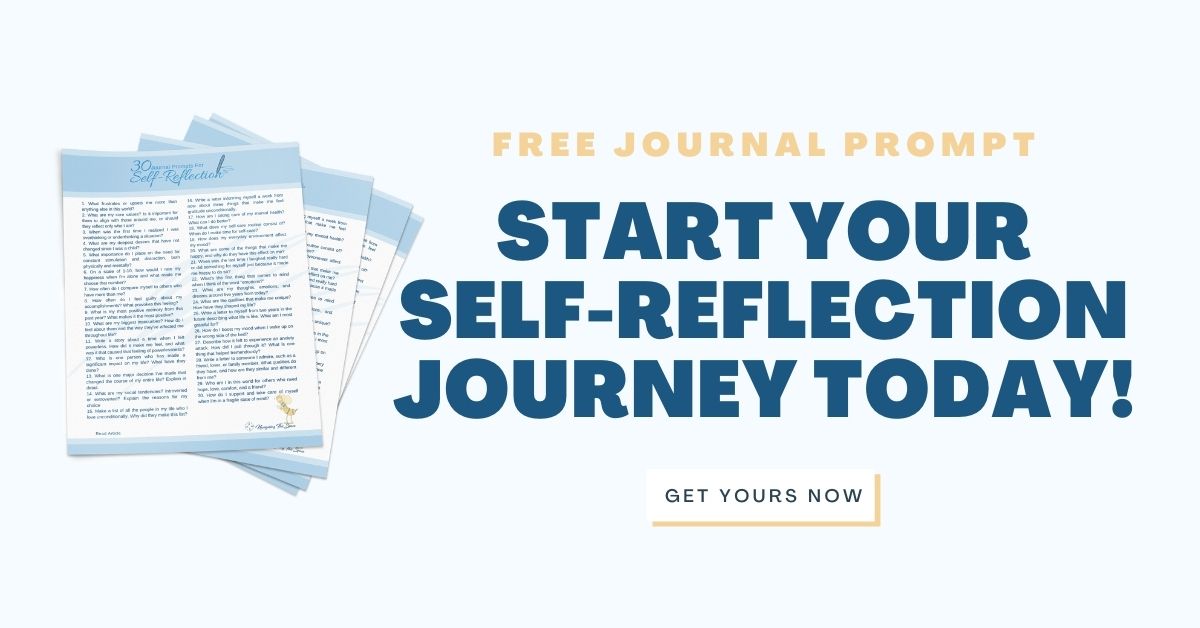
You Will Find Your Sense of Identity
Whether you’re grieving the loss of a loved one, an identity change, or simply struggling with life in general, it’s important to take care of yourself. You need to make sure that your mind is healthy and grounded before exploring who you are now, so that you can start gaining insight into what makes you happy.
I hope these tips will help provide some guidance for finding yourself after experiencing trauma that causes a loss of identity.
It’s more than okay to seek professional help to get you through an identity crisis. Sometimes website articles and an internet community might not be enough to get you through your loss of identity.
Remember that no matter how bad things may seem right now, there is always light at the end of the tunnel if you only shift your focus to the future.

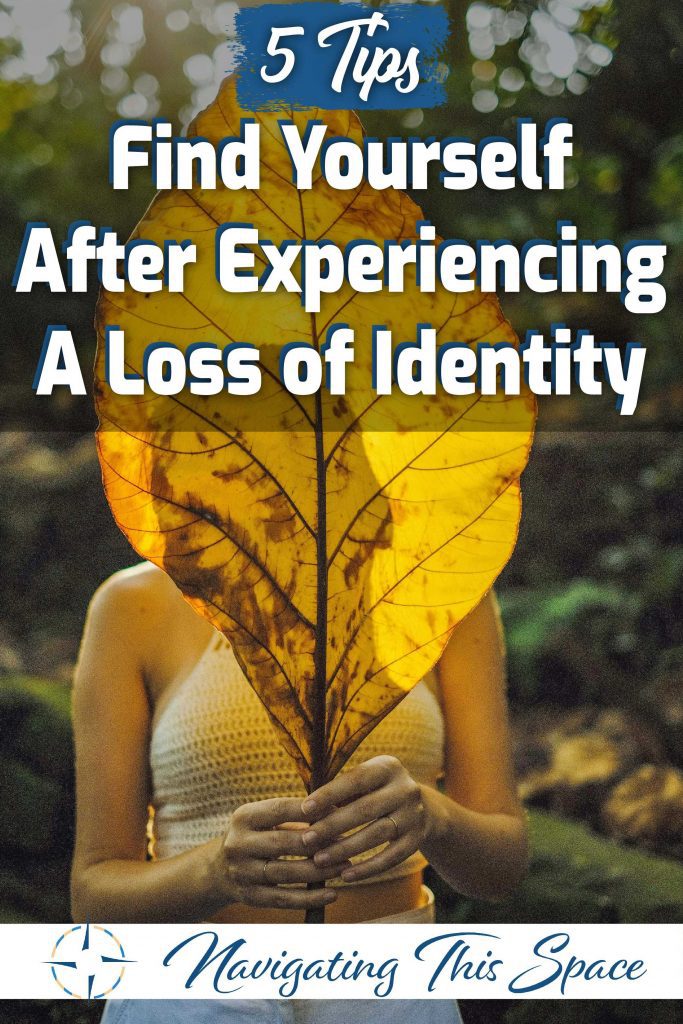
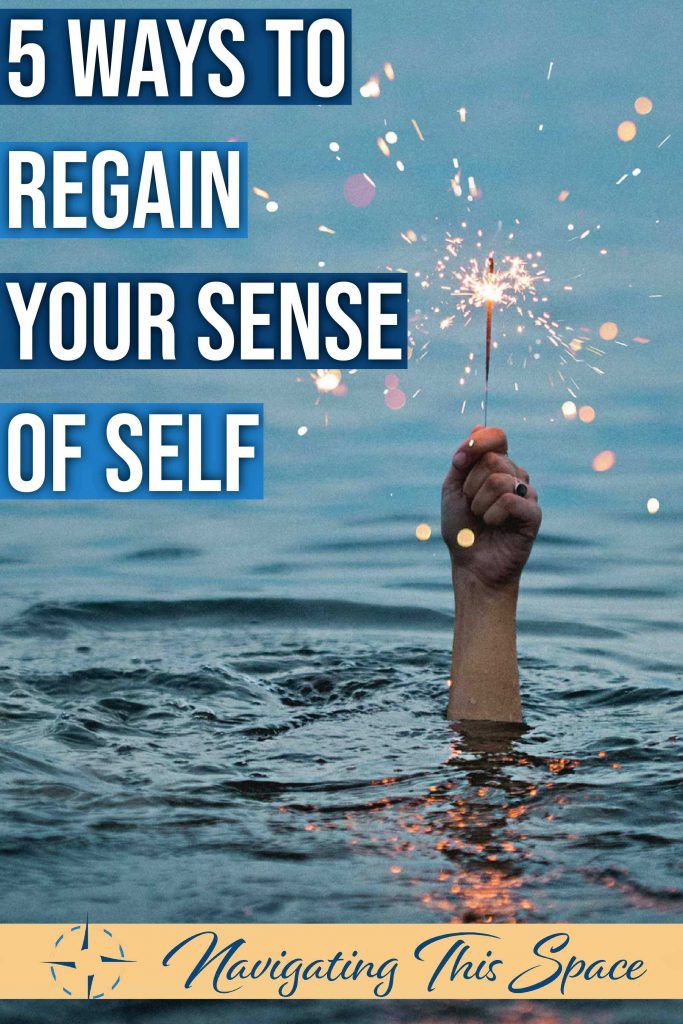

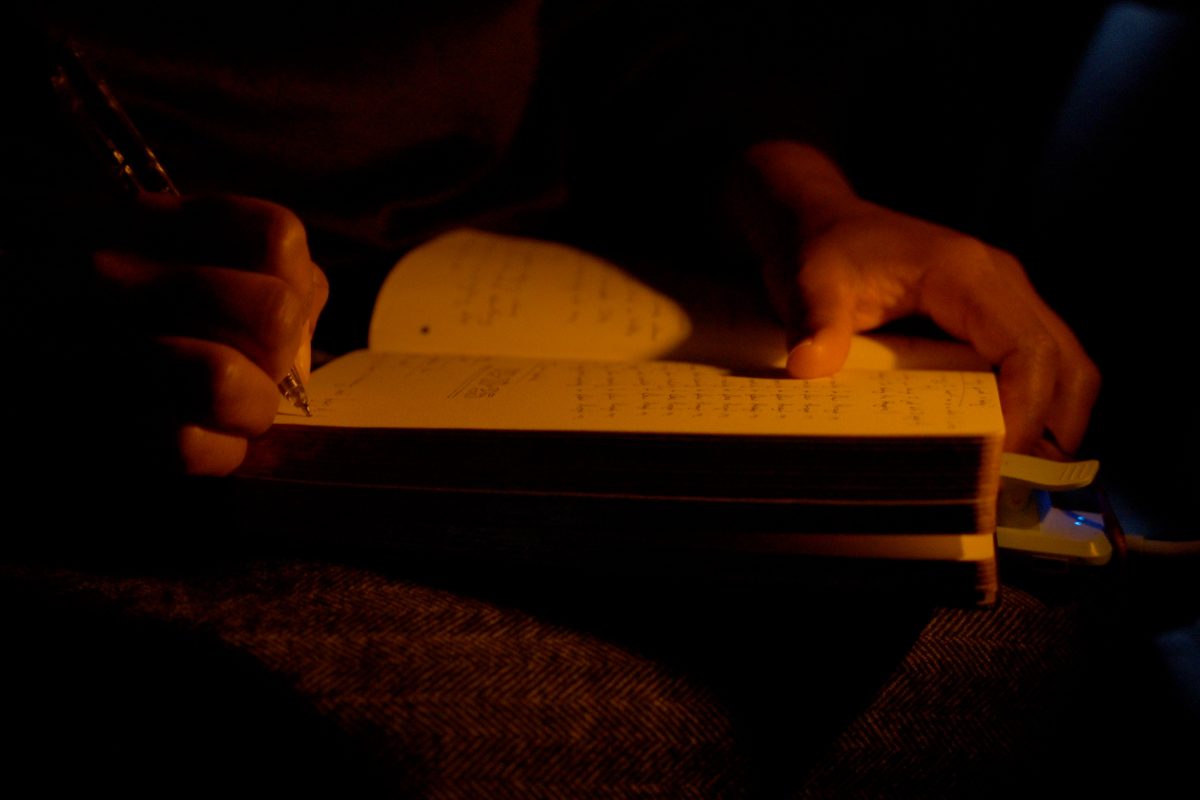
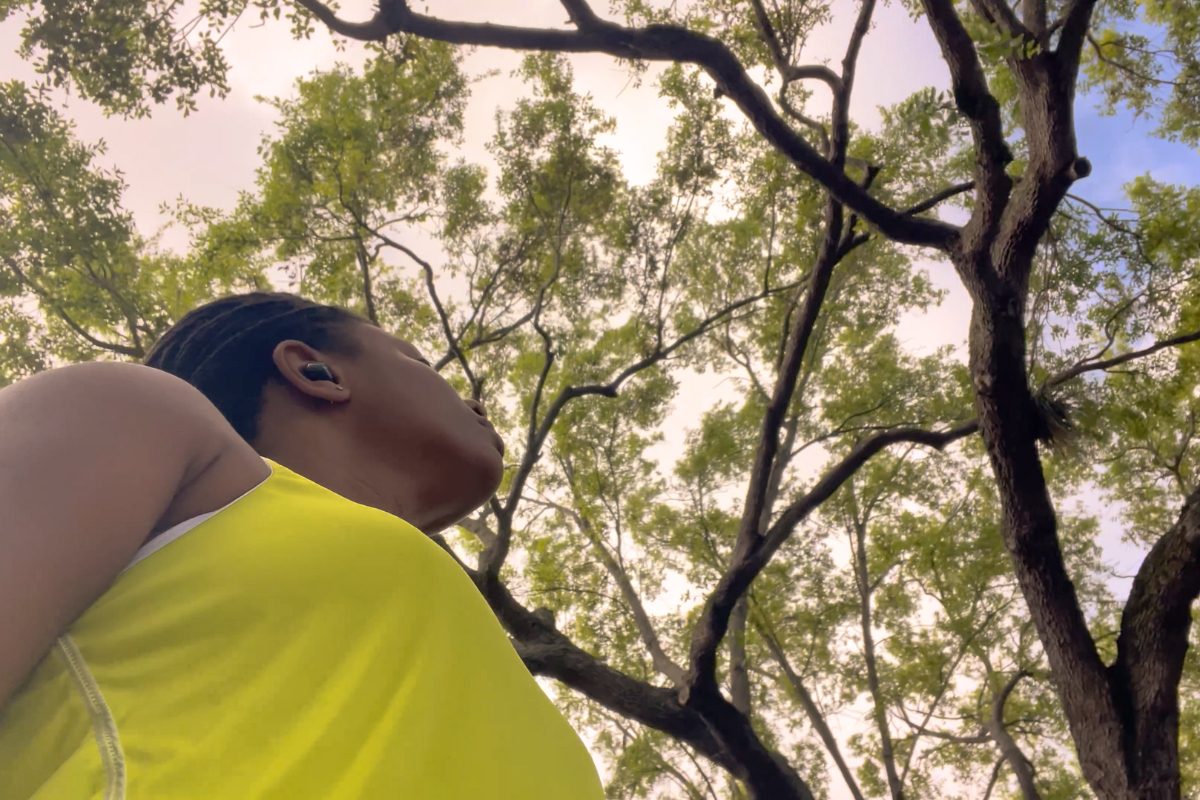
For me personally, I know that my identity comes from Jesus Christ so when I lost myself I had to get back into God’s word and spending time with Him. I meditated on His word and getting outside enjoying His creations in nature definitely helped.
Thank you for your comment Tamera, I appreciate you sharing what helped you during your difficult time. Thanks for reading!